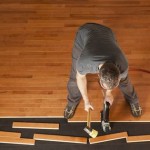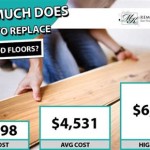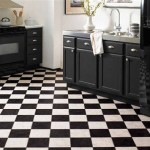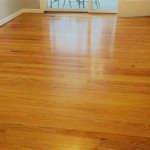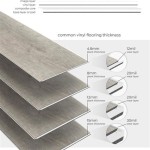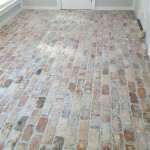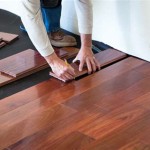How Much Does It Cost To Resurface Hardwood Floors?
Hardwood floors offer a classic aesthetic appeal and long-lasting durability to any home. However, over time, these floors can accumulate scratches, dents, and a worn finish, diminishing their original beauty. Resurfacing, also known as refinishing, provides an effective solution to revitalize hardwood floors without the need for complete replacement. Understanding the costs associated with this process is crucial for homeowners seeking to restore their floors while staying within budget.
The cost to resurface hardwood floors is not a fixed figure and varies depending on several factors. These include the size of the area being refinished, the type of wood, the extent of damage, the chosen finish, and the geographic location. This article explores these cost-determining aspects in detail and provides a comprehensive overview of the expenses involved in resurfacing hardwood floors.
Factors Influencing the Cost of Hardwood Floor Resurfacing
The overall cost of refinishing hardwood floors is influenced by a multitude of factors, each contributing to the final expense. Recognizing these elements allows homeowners to make informed decisions and accurately estimate the budget required for their floor restoration project.
Size of the Area: The most significant factor affecting the cost is the square footage of the area being refinished. Larger areas naturally require more time, labor, and materials, leading to higher overall costs. Flooring contractors typically charge per square foot, with rates varying based on the complexity of the job and regional pricing. For example, a small bedroom will cost less to refinish than an entire living room and dining area.
Type of Wood: The type of wood used in the flooring also impacts the cost. Softer woods, such as pine, may require more careful sanding and preparation, potentially increasing labor costs. Exotic or rare hardwood species may necessitate specialized finishes that are more expensive. Additionally, the grain pattern and hardness of the wood can influence the sanding process, affecting the time and effort required to achieve a smooth, even surface.
Extent of Damage: The condition of the existing hardwood floor plays a crucial role in determining the resurfacing cost. Floors with minor scratches and surface wear will require less extensive sanding and preparation compared to floors with deep gouges, stains, or water damage. Extensive damage may necessitate repairs, such as replacing damaged boards, which will add to the overall cost. In severe cases, if the damage is too extensive, complete floor replacement might be a more cost-effective option.
Type of Finish: The choice of finish significantly impacts the cost of resurfacing. Various types of finishes are available, each with its own price point and characteristics. Polyurethane finishes are a common and relatively affordable option, offering good durability and protection against wear and tear. Water-based finishes are another popular choice, known for their low VOC content and quick drying time, but they may be slightly more expensive than oil-based options. Premium finishes, such as penetrating oil or specialized stains, offer unique aesthetics and enhanced durability but typically come with a higher price tag. The number of coats applied also affects the material cost and labor time.
Geographic Location: Labor costs and material prices vary depending on the geographic location. Areas with a higher cost of living typically have higher labor rates for flooring contractors. Material prices can also fluctuate based on regional availability and transportation costs. Obtaining quotes from multiple local contractors is essential to gain an accurate understanding of the prevailing rates in a specific area.
Additional Services: Certain additional services can influence the overall cost of hardwood floor resurfacing. These may include moving furniture, removing existing flooring (if any), repairing subflooring, applying stain, and disposing of waste materials. Homeowners should inquire about these services and their associated costs when obtaining quotes from contractors. Depending on the scope of the project, these additional services can significantly impact the final price.
Typical Costs Associated with Hardwood Floor Resurfacing
To provide a clearer understanding of the financial commitment involved, examining the typical costs associated with hardwood floor resurfacing is beneficial. These figures are estimates and can vary based on the factors previously discussed. It is always best to get a custom quote from a professional for accurate pricing tailored to your specific circumstances.
Average Cost per Square Foot: The average cost to resurface hardwood floors typically ranges from $3 to $8 per square foot. This estimate includes sanding, staining (if desired), and applying a protective finish. The cost can be lower for simple projects with minimal damage and standard finishes, while more complex projects with extensive repairs and premium finishes will fall on the higher end of the range.
Cost of Materials: The cost of materials includes sandpaper, stain (if desired), finish, and any necessary repair materials. The price of these materials varies depending on the quality and type chosen. Generally, homeowners can expect to spend between $0.50 and $2 per square foot on materials, depending on their specific preferences and the scope of the project.
Labor Costs: Labor costs constitute a significant portion of the overall resurfacing expense. The cost of labor varies depending on the contractor's experience, the complexity of the job, and the geographic location. Labor costs can range from $2 to $6 per square foot. Experienced contractors with a proven track record may charge higher rates, but their expertise can ensure a high-quality finish and minimize the risk of errors.
Additional Costs: As previously mentioned, additional costs can arise from services such as furniture removal, subfloor repair, and waste disposal. These costs can vary significantly depending on the specific requirements of the project. It is important to discuss these potential additional costs with the contractor upfront to avoid any surprises later on.
DIY vs. Professional Resurfacing: While homeowners can attempt to resurface hardwood floors as a DIY project, it is generally recommended to hire a professional. DIY resurfacing requires specialized equipment, technical knowledge, and physical stamina. Improper sanding can damage the floor, leading to costly repairs. Professional contractors possess the expertise and equipment to ensure a smooth, even finish and minimize the risk of errors. While DIY resurfacing may seem more cost-effective initially, the potential for mistakes and the time investment involved often outweigh the potential savings.
Strategies for Managing Hardwood Floor Resurfacing Costs
Even though resurfacing hardwood floors involves a significant investment, several strategies can help homeowners manage costs and stay within budget. These strategies involve careful planning, informed decision-making, and proactive communication with contractors.
Obtain Multiple Quotes: Obtaining quotes from at least three to five different contractors is essential for comparing prices and finding the best value. Comparing quotes allows homeowners to identify the most competitive rates and assess the contractors' experience and qualifications. Ensure that the quotes are detailed and include a breakdown of all costs, including materials, labor, and any additional services.
Choose the Right Finish: Selecting the appropriate finish can significantly impact the overall cost. Consider the durability requirements and aesthetic preferences when choosing a finish. Opting for a durable, high-quality finish can prolong the life of the resurfaced floors and reduce the need for future refinishing, ultimately saving money in the long run.
Address Damage Promptly: Addressing any existing damage to the hardwood floor promptly can prevent the problem from worsening and minimize the need for extensive repairs during resurfacing. Repairing damaged boards or addressing water damage early on can significantly reduce the overall cost of the project.
Consider Refinishing in Stages: If the budget is limited, consider refinishing the hardwood floors in stages. Prioritize the areas that require the most attention and refinish them first. This allows homeowners to spread the cost over time and address the most pressing issues immediately.
Prepare the Area: Homeowners can reduce labor costs by preparing the area before the contractor arrives. This includes removing furniture, clearing the floors, and removing baseboards if necessary. By handling these tasks themselves, homeowners can save time and money on labor costs.
Negotiate with Contractors: Don't hesitate to negotiate with contractors on prices and services. Ask about potential discounts or alternative options that may be more cost-effective. Clear communication and negotiation can help homeowners secure the best possible price for their hardwood floor resurfacing project.
By understanding the factors that influence the cost of hardwood floor resurfacing and implementing effective cost-management strategies, homeowners can revitalize their floors while staying within their budget. Seeking professional advice and obtaining multiple quotes are essential steps in ensuring a successful and affordable floor restoration project.

Cost To Refinish Hardwood Floors Sandless In Seattle

The Cost To Refinish Hardwood Floors 7 Things You Need Know

Hardwood Floor Refinishing Cost Urban Customs
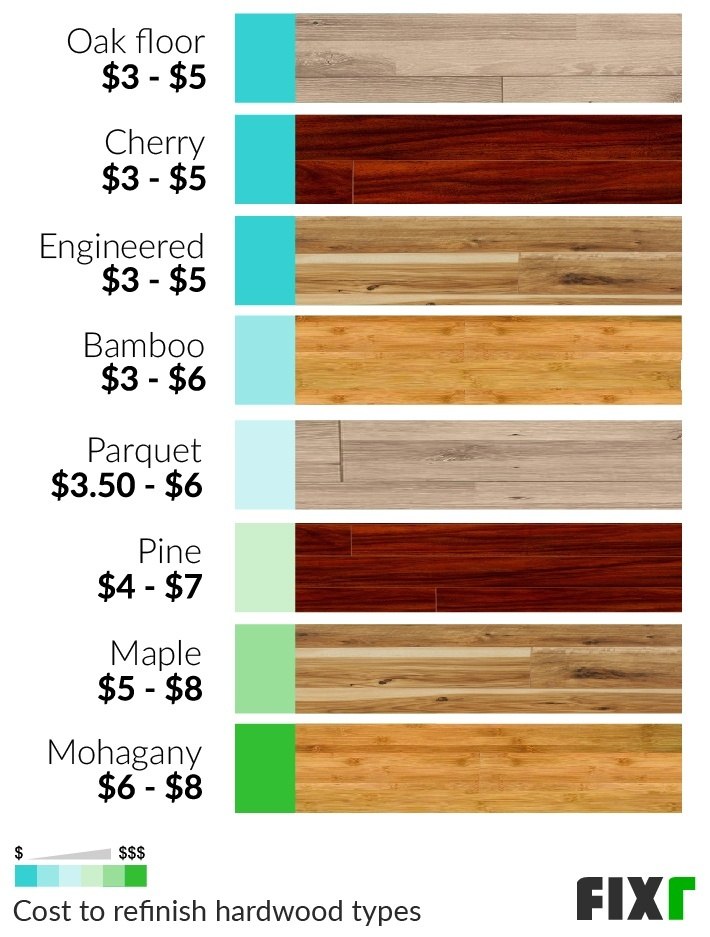
Cost To Refinish Hardwood Floor Refinishing Fixr

Cost To Refinish Hardwood Floor Refinishing Fixr

How Much Does It Cost To Refinish Hardwood Floors In 2025
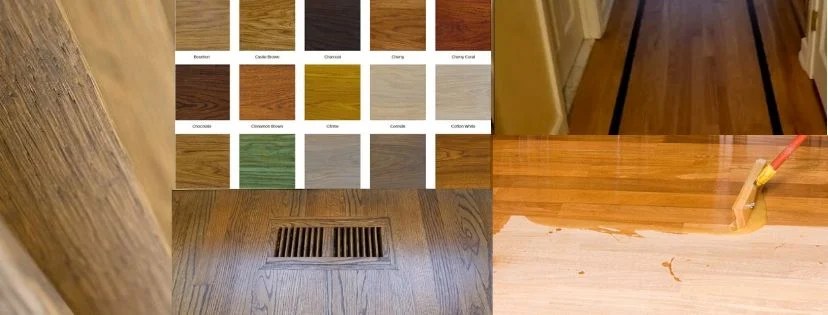
What Is The Cost To Refinish Hardwood Flooring

How Much Does Hardwood Floor Refinishing Cost 2025 Data

How Much Does It Cost To Refinish Hardwood Floors In 2025

Hardwood Floor Refinishing Cost Prices 2024

